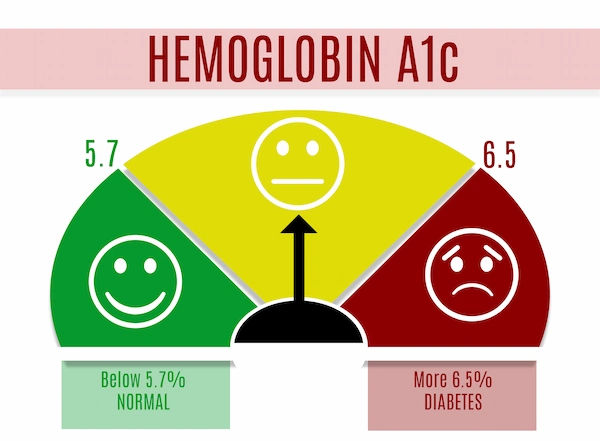What Is Natural Mounjaro and How Does It Help Manage Diabetes
Natural Mounjaro explained: what tirzepatide is, why no natural version exists, and evidence-based diabetes management steps you can trust.

Written by Dr. J T Hema Pratima
Reviewed by Dr. Rohinipriyanka Pondugula MBBS
Last updated on 13th Jan, 2026

Introduction: Why This Topic Matters
If you’ve searched for “natural Mounjaro,” you’re far from alone. Many people living with type 2 diabetes are looking for safer, more natural ways to manage their blood sugar and overall health. Mounjaro is the brand name for tirzepatide, a prescription medication that has shown impressive benefits for both glucose control and weight management. But is there really such a thing as a natural Mounjaro? And how does tirzepatide fit into a comprehensive diabetes care plan?
This guide explains how tirzepatide works, clears up myths about so-called “natural versions,” and outlines evidence-based, lifestyle-driven strategies that support blood sugar control naturally—whether or not you use medication.
Consult a Top Endocrinologist for Personalised Advice
What People Mean by “Natural Mounjaro”
When people talk about “natural Mounjaro,” they often mean one of two things:
A natural or over-the-counter product that works like Mounjaro.
Lifestyle approaches (diet, exercise, or weight management) that improve blood sugar without medications.
It’s important to understand that there is no true natural Mounjaro equivalent. Mounjaro (tirzepatide) is a scientifically engineered medicine that targets two hormone pathways in the body. No herb, vitamin, or supplement has been proven to reproduce these effects or replace prescription treatment safely.
What Mounjaro (Tirzepatide) Actually Is
Mounjaro is the brand name for tirzepatide, a once-weekly injectable medicine prescribed for adults with type 2 diabetes. It’s also available under a different brand, Zepbound, for chronic weight management in certain adults. Tirzepatide is not approved for people with type 1 diabetes.
How Tirzepatide Works in the Body?
Tirzepatide activates two key incretin hormone receptors, it works in the following ways:
- GLP-1 (glucagon-like peptide-1)
- GIP (glucose-dependent insulinotropic polypeptide)
These hormones play a major role in glucose control and appetite regulation. By targeting both, tirzepatide can:
- Stimulate insulin release when blood sugar levels rise.
- Suppresses glucagon (a hormone that increases blood sugar).
- Slow stomach emptying promotes fullness and reduces appetite, which can support healthy weight loss.
Because these effects are glucose-dependent, tirzepatide has a lower risk of causing hypoglycaemia (low blood sugar) when used alone. However, the risk can increase if it’s combined with insulin or certain other diabetes drugs.
What the Evidence Shows
Large clinical studies have demonstrated that tirzepatide:
- Significantly lowers HbA1c (a long-term blood sugar measure).
- Promotes meaningful weight loss in adults with type 2 diabetes.
- Improves cardiovascular and metabolic outcomes when used alongside healthy lifestyle changes.
Better glucose control translates to fewer diabetes complications—such as heart disease, nerve damage, kidney problems, and vision loss—making tirzepatide a valuable option for many patients.
Is There a “Natural Mounjaro”?
In short: no. There is currently no natural supplement or food proven to replicate tirzepatide’s dual-receptor action or clinical results. Be cautious of any product marketed as a “natural tirzepatide” or “natural Mounjaro alternative.” Such claims are unsupported by clinical evidence, and some supplements may interfere with diabetes medications or cause side effects.
That said, there are powerful natural lifestyle steps—proven by science—that can support blood sugar control and improve health outcomes.
Be Cautious About Products Marketed as Natural Mounjaro
- Supplements are not regulated as strictly as prescription drugs. Purity, potency, and effectiveness can vary widely.
- No supplement should replace prescribed medications or professional medical advice.
- Always check with your healthcare provider before taking any supplement, especially if you’re on diabetes medication, blood thinners, or have kidney or liver issues.
Safe, Effective “Natural” Strategies for Diabetes Management
Lifestyle and behavioural changes are the foundation of diabetes care. They enhance the effectiveness of medication—or, in some cases, may reduce the need for it. These steps not only stabilise blood sugar but also benefit heart, brain, and kidney health.
Nutrition Basics That Make a Difference
- Choose fibre first: Vegetables, fruits, beans, lentils, nuts, seeds, and whole grains help regulate digestion and stabilise blood sugar levels.
- Focus on lean proteins and healthy fats: Fish, poultry, tofu, eggs, olive oil, nuts, and avocados promote satiety and reduce post-meal spikes.
- Limit refined carbohydrates and sugars: Cut down on sugary drinks, sweets, white bread, and processed foods to minimise glucose surges.
- Adopt a balanced eating pattern: The Mediterranean and DASH diets have the strongest evidence for supporting metabolic health. Use the plate method—half non-starchy vegetables, one-quarter lean protein, and one-quarter high-fibre carbohydrates.
- Mind portion size and timing: Consistent meal timing and moderate portions can help prevent sharp changes in blood glucose levels.
Physical Activity: A Powerful Natural Tool
- Aim for at least 150 minutes of moderate aerobic activity weekly (e.g., brisk walking, cycling, swimming).
- Include two or more days of resistance training for muscle strength and better insulin sensitivity.
- Even short walks after meals—10 to 15 minutes—can reduce blood sugar spikes.
- Break up sitting time by standing or stretching every 30–60 minutes.
Weight Management and Insulin Sensitivity
- Losing just 5–10% of body weight (if overweight) can greatly improve glucose control, blood pressure, and cholesterol.
- Combine healthy eating, movement, sleep, and stress reduction for sustainable progress.
- Focus on steady, achievable changes rather than strict, short-term dieting.
Sleep and Stress Matter
- Prioritise 7–9 hours of quality sleep per night. Poor sleep increases insulin resistance and appetite.
- Manage stress with simple techniques such as deep breathing, walking, gentle stretching, or mindfulness. High stress hormones can raise blood sugar.
Monitoring and Ongoing Medical Care
- Check your blood sugar as advised and understand your target HbA1c level.
- Stay up to date with other checks: blood pressure, cholesterol, kidney function, eye and foot exams, and vaccinations.
- Work with a multidisciplinary team—your GP, diabetes nurse, dietitian, or pharmacist—to tailor your plan.
Who Might Benefit from Tirzepatide?
Your clinician may recommend tirzepatide if:
- You have type 2 diabetes and need extra HbA1c reduction despite other treatments.
- You would benefit from weight loss as part of your diabetes management plan.
- You prefer a once-weekly injection and have no contraindicating health issues.
Tirzepatide isn’t suitable for everyone—it’s not used in type 1 diabetes and may not be appropriate if you have certain health risks (see below).
Safety, Side Effects, and Who Should Avoid Tirzepatide
Common safety, side effects and situations to avoid tirzepatide include:
Common side effects are:
- Nausea, vomiting, diarrhoea, or constipation (often improve over time).
- Loss of appetite, indigestion, or bloating.
Less common but serious risks effects are:
- Low blood sugar (especially if combined with insulin or sulphonylureas).
- Pancreatitis (severe abdominal pain, nausea, or vomiting—seek urgent care).
- Gallbladder problems (gallstones or inflammation).
- Worsening kidney function if dehydration occurs.
- Potential thyroid C-cell tumour risk in animals; avoid if you or your family have medullary thyroid carcinoma (MTC) or multiple endocrine neoplasia type 2 (MEN2).
Do not use tirzepatide if:
- You or a close family member has MTC or MEN2.
- You’ve had an allergic reaction to tirzepatide.
- Your clinician identifies another health reason or drug interaction that makes it unsuitable.
Always provide your full medical history and medication list before starting tirzepatide.
How to Talk to Your Healthcare Provider
If you’re exploring tirzepatide or wondering about natural approaches, ask your clinician:
- Is tirzepatide suitable for my current health and blood sugar goals?
- What benefits and side effects should I expect?
- How will we track my progress and adjust the plan?
- How does tirzepatide fit with my current medications and diet?
- What specific lifestyle changes should I focus on right now?
Conclusion
While there is no such thing as a natural Mounjaro pill or supplement, you can still harness the body’s natural systems to achieve better blood sugar control. Tirzepatide offers powerful benefits for many with type 2 diabetes, but lifestyle habits remain the foundation of good health. Balanced nutrition, regular movement, restful sleep, and emotional well-being work together to enhance your results—whether or not you take medication.
Ultimately, diabetes care is not about choosing between “natural” and “medical” approaches—it’s about combining both intelligently. Work closely with your healthcare team, stay informed, and make sustainable daily choices that support long-term vitality and confidence in your health.
Consult a Top Endocrinologist for Personalised Advice
Consult a Top Endocrinologist for Personalised Advice

Dr. Anand Ravi
General Physician
2 Years • MBBS
Bengaluru
PRESTIGE SHANTHINIKETAN - SOCIETY CLINIC, Bengaluru

Dr. E Prabhakar Sastry
General Physician/ Internal Medicine Specialist
40 Years • MD(Internal Medicine)
Manikonda Jagir
Apollo Clinic, Manikonda, Manikonda Jagir
(150+ Patients)
Dr. Kiran Kumar Pasam
Endocrinologist
12 Years • MBBS, MD(General Medicine), DM (Endocrinology)
Hyderabad
Dr Kiran Kumar Pasam, Hyderabad
(25+ Patients)
Aditya Singh
Endocrinologist
8 Years • MBBS
Bengaluru
Apollo One Electronic City, Bengaluru

Dr. Arunava Ghosh
General Physician/ Internal Medicine Specialist
10 Years • MBBS,MD(GENL.MED.),DM(ENDOCRINOLOGY)
Kolkata
VDC Clinic, Kolkata
Consult a Top Endocrinologist for Personalised Advice

Dr. Anand Ravi
General Physician
2 Years • MBBS
Bengaluru
PRESTIGE SHANTHINIKETAN - SOCIETY CLINIC, Bengaluru

Dr. E Prabhakar Sastry
General Physician/ Internal Medicine Specialist
40 Years • MD(Internal Medicine)
Manikonda Jagir
Apollo Clinic, Manikonda, Manikonda Jagir
(150+ Patients)
Dr. Kiran Kumar Pasam
Endocrinologist
12 Years • MBBS, MD(General Medicine), DM (Endocrinology)
Hyderabad
Dr Kiran Kumar Pasam, Hyderabad
(25+ Patients)
Aditya Singh
Endocrinologist
8 Years • MBBS
Bengaluru
Apollo One Electronic City, Bengaluru

Dr. Arunava Ghosh
General Physician/ Internal Medicine Specialist
10 Years • MBBS,MD(GENL.MED.),DM(ENDOCRINOLOGY)
Kolkata
VDC Clinic, Kolkata
More articles from Diabetes
Frequently Asked Questions
Consult a Top Endocrinologist for Personalised Advice
No. No supplement can mimic tirzepatide’s dual GIP/GLP-1 receptor activity or clinical results. Some supplements may help with general health but cannot replace prescription treatment.
Q2: Can lifestyle changes replace diabetes medications?
Lifestyle management is the cornerstone of diabetes care and can sometimes reduce the need for medication. However, many people still benefit from drugs like metformin or tirzepatide. Always make changes under medical supervision.
Q3: Is tirzepatide the same as semaglutide (Ozempic or Wegovy)?
No. While both affect the incretin system, semaglutide acts only on GLP-1 receptors, whereas tirzepatide targets both GIP and GLP-1. Your clinician can help decide which option best fits your treatment goals.
Q4: Who should avoid tirzepatide?
People with a personal or family history of medullary thyroid carcinoma or MEN2, or those with known allergies to tirzepatide, should not use it. Discuss your medical history in detail before starting.
Q5: What everyday steps help most with blood sugar control?
Focus on high-fibre foods, lean protein, and minimally processed carbs; walk after meals; include regular strength training; get enough sleep; manage stress; and maintain consistent follow-up with your healthcare team.




